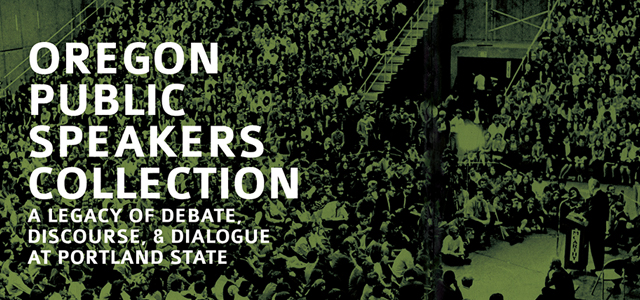Date
4-17-1959
Length
1 hour 7 minutes
Notes
Loren Eiseley was an American anthropologist, natural science writer, and philosopher. In this talk, he discusses the possible influences of nineteenth-century science writers on Charles Darwin's theory of evolution and in his work On the Origin of Species. Dr. Charles Brandt, Associate Professor of Anthropology at Portland State College, introduced Dr. Eiseley.
Transferred and preserved by Portland State University Library’s Special Collections with the generous support of the Institute of Museum and Library Services through the Library Services and Technology Act, administered by the Oregon State Library.
Subjects
Charles Darwin -- 1809-1882, Natural Selection -- History
Original Format
Reel to reel, 3.75 ips, 1/2 track, mono
Rights
This digital access copy is made available as streaming media for personal, educational, and non-commercial use only. It cannot be reproduced in any form, distributed or played for commercial purposes. It is made accessible because of one or more of the following situations: the rights are owned by State Board of Higher Education, on behalf of Portland State University; Portland State University has permission to make it accessible; it is made accessible for education and research purposes under fair use; or there are no known restrictions on use. In the event that previously unknown information is shared that may change the status of this item, it will be immediately removed from public view until pertinent rights issues are clarified.
Persistent Identifier
http://archives.pdx.edu/ds/psu/11055
Recommended Citation
Eiseley, Loren, ""The Unknown Darwin"" (1959). Special Collections: Oregon Public Speakers. 8.
http://archives.pdx.edu/ds/psu/11055



Description
Transcript added March 5, 2021.
PSU Library Special Collections and University Archives presents these recordings as part of the historical record. They reflect the recollections and opinions of the individual speakers and are not intended to be representative of the views of Portland State University. They may contain language, ideas, or stereotypes that are offensive to others.